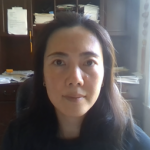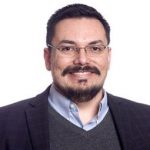
Jing Hou
Position: Assistant Professor, California State University, San Marcos
Bio
The next-generation computer networks are characterized by novel distributed paradigms composed of autonomous and intelligent nodes. Prominent examples of these modern networks are IoT-based health monitoring systems, autonomous vehicles, and smart grids. Their efficiency, scalability and security highly rely on the interconnection of the entities, such as individuals, devices, and software. These coexisting entities can be cooperative, selfish, or malicious, and make local-information-based decisions on their own behalf.
Conventional optimization methods or security approaches dealing with pure engineering issues are either inefficient or impractical when applied to decentralized architectures. They are mainly focusing on a single administrative domain with a single control objective and obedient users. Because of this, they are very limited due to the neglect of the heterogeneous interest-seeking behaviors and the complex interactions in the ecosystem.
Therefore, integrated approaches combining multiple scientific and engineering disciplines, including engineering, economics and operations research, are required to transform the vision of new networking paradigms into reality.Such approaches can, in principle, explain underlying economics, provide realistic mechanism designs and guarantee the network sustainability. My research goal is to support interdisciplinary decision-making in real-world networks by exploring the incentive-driven behaviors and dynamic interactions in the ecosystems and developing multi-agent models that generate practical and reliable solutions for networking systems.
Keywords
- Network Economics
- Game Theory
- Supply Chain
- Wireless Communication
- Machine Learning





